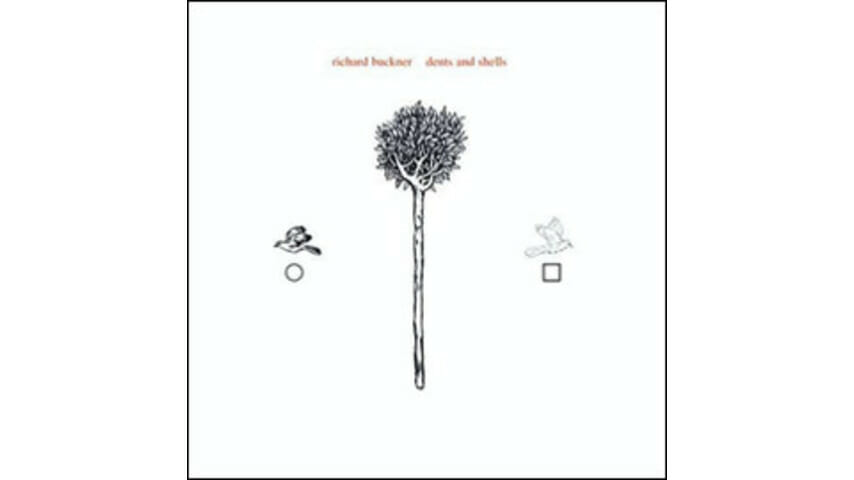
Richard Buckner’s recording career has proven as liminal as his sketchy, symbolist-inspired lyrical turns; he’s always seemed on the verge of a breakthrough and never really at home in any on genre—be it Americana, indie rock or folk. Such marginality typically indicates superior talent is once again taking hits from the industry and, to be sure, the unassuming Texan has weathered his share of bad breaks and raw deals. But the quality of a Buckner creation can be as difficult to assess as the rest of his persona. His idiosyncratic wordcraft often comes at the expense of accessibility (an appreciation of 2002’s Impasse depended on your willingness to follow Buckner’s disjointed psychological snapshots and woozy non sequitur). But his saving grace has always been his ability to choose words purely for the rhythmic and phonetic quality they possess (a true English major, he), delivering them in a haunting melismatic croak that could make a nursery rhyme sound visceral.
His latest release, Dents and Shells, picks up where Impasse left off, straying yet farther from the concrete and structured mold of his late-’90s MCA projects, Devotion + Doubt and Since. Even the rhythms on Dents and Shells (courtesy of Butthole Surfers drummer King Coffey) seem to hover and pulse with ambiguous urgency, waiting for a signal that never comes. The melodies settle casually into Buckner’s tuneful comfort zone, often devolving into little more than vocal noodling. On first listen, Dents and Shells sounds mostly like an abstraction of every other Richard Buckner album. The second or third spin, however, begins revealing the subtlety of Buckner’s craft. Repeated passes allow the lyrics to accrue meaning, aural melancholy hanging from the edges like quilts on an unmade bed. Buckner is a master of the indeterminate—lesser writers would lose control over such inchoate notions, but Buckner treads the broad borders of his creative intuition with poetic precision.
The drawback to Buckner’s approach is that a sameness settles in, and even when one finally “gets it,” a nagging feeling persists: the whole process has been too much damned trouble. The blurred lines of Buckner’s imagination are interesting as an experiment in pushing the limits of pop lyricism, but they’re only partially successful; only occasionally compelling. When writers like Dylan or Joni Mitchell succeeded with similar literary-minded ambition, it’s generally because they acknowledged that rock lyrics don’t simply live on paper, they have to work within the context of a three-minute pop song. If all payoff is buried in the nuance of a Rimbaud-esque verbal flourish, why bother singing the lines to begin with? “Visions of Johanna” didn’t necessarily make complete sense on first listen, but it drew you in.
More lyrical directness and increased attention to arrangement could easily pull Buckner’s excursions into the realm of pop classics. Such suggestions might offend the 19th-century romantic poet in his soul, but I fear these are the limitations of his chosen medium. Buckner’s voice saves the performances because he’s a charismatic vocalist, but don’t expect to hear a torrent of artists covering Dents and Shells any time soon.